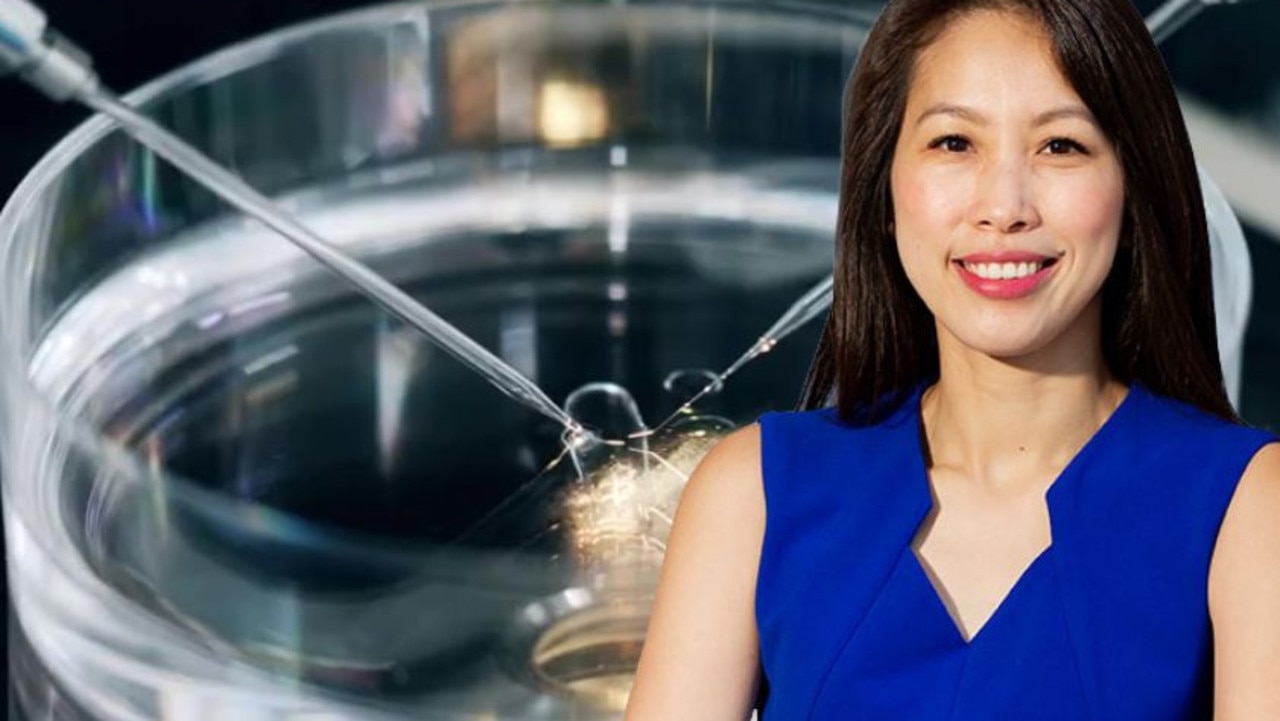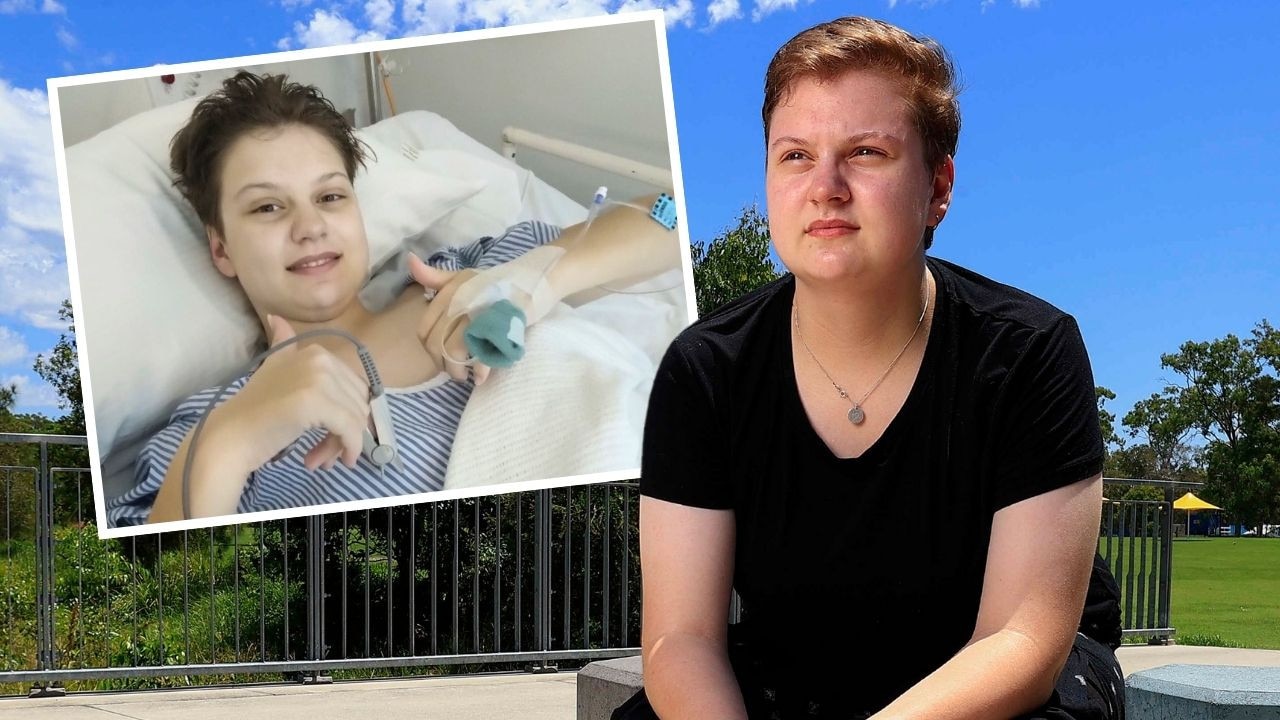Why egg freezing has jumped 1567 per cent in 10 years in Australia
Louise Davidson is in her mid-30s and decided to freeze her eggs. She is not alone. See the latest advice from experts on when and how to do it to try and ensure the best results.
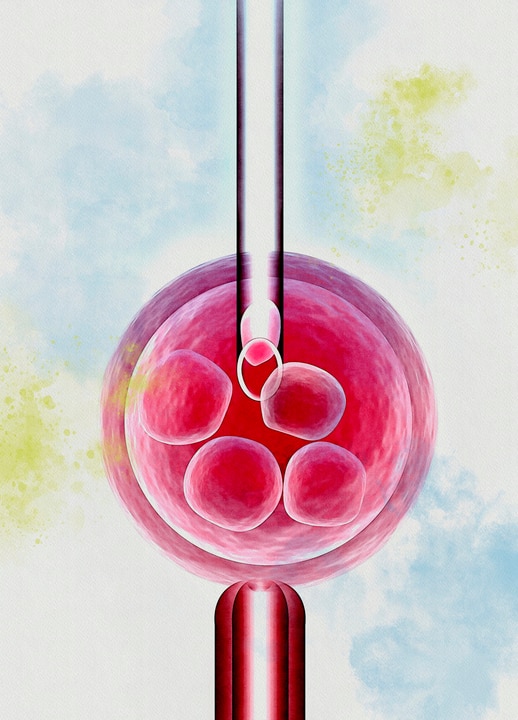
Fertility
Don't miss out on the headlines from Fertility. Followed categories will be added to My News.
Louise Davidson is in her mid-30s and like five of her friends has had her eggs frozen in case she wants children one day.
The 37-year-old consultant space engineer said egg freezing has been a “topic of conversation” among her friendship circle for a number of years, but she was finally spurred into doing it on the advice of three specialists following a medical issue.
According to the Body+Soul Health of the Nation survey, 37 per cent of Gen Z, born between 1995 and 2009, and 28 per cent of Millennials, born 1980 to 1994, said they would consider it or are considering freezing their eggs. A further one in four are unsure.
The survey found out of all women surveyed, the number who have considered freezing their eggs for future use, rose from 13 per cent in 2024, to 15 per cent in 2025.
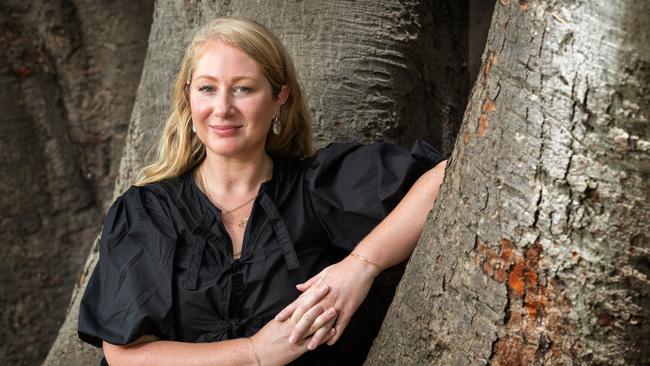
There are no national statistics on egg freezing, but experts agree it’s increased dramatically.
IVF group Genea said the number of women freezing their eggs jumped 1567 per cent between 2013 and 2023.
Genea uses a snap-freeze process called vitrification, that transforms the liquid inside the cell into a glasslike state before being stored on a strip of film called Cryotop.
Genea fertility specialist Dr Chandrika Parmar said the process is much improved on what was happening 10 years ago, but warned egg freezing does not “guarantee” a baby.
“There will be some patients where the eggs are thawed and they do not convert into embryos,” Dr Parmar said. “The two unknowns are the quality of the egg and the quality of the sperm, because to make an embryo, you need that to make the baby.”
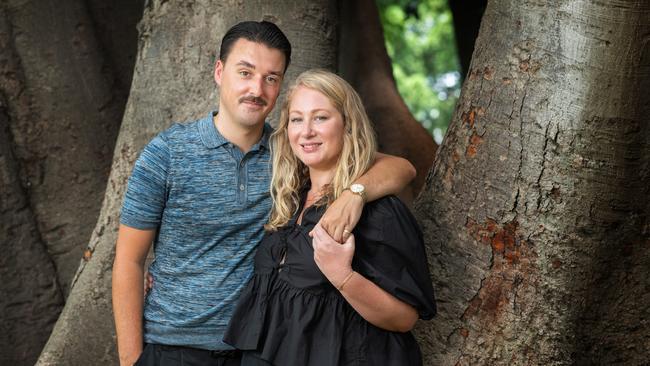
Dr Parmar said Genea’s stats show there is a 70 to 80 per cent chance of pregnancy with 10 to 20 eggs taken from a woman at the age of 30, compared with a 60 per cent chance using a similar number of eggs extracted at the age of 38.
She said the best age to extract are between 28 and 35.
She said nine to 11 eggs are usually collected from each round, so sometimes two rounds or more are needed.
Ms Davidson, from Melbourne, said she was lucky to get 35 eggs from two rounds, when some of her friends have less than 10 eggs from multiple rounds.
She was also able to claim a Medicare rebate because she was deemed as medically infertile and was out of pocket by about $6000.
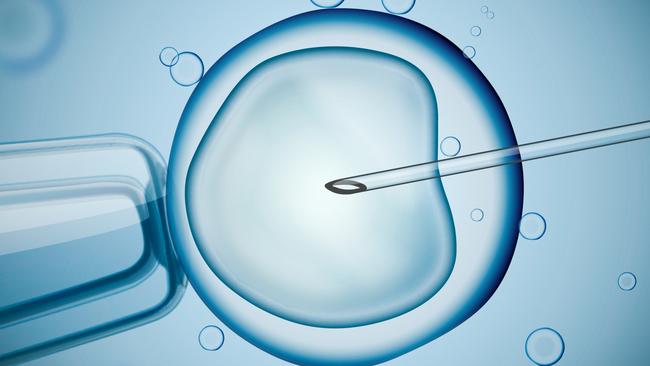
She said both her and her partner always thought they wanted a family one day, but it’s never been the right time.
Many of her friends feel the same way, either they have not found the right partner, or don’t feel financially secure.
“I was having this conversation very recently with a couple of my friends,” Ms Davidson said.
“They have gone through the egg freezing process or they’re about to and we were laughing that we’re working so hard so we can have even just a glimmer of hope of having the comfort of previous generations.
“We’re looking at what our parents had … but we just can’t afford to have that unless we keep working. So that’s where the freezing is really beneficial.”
She said egg freezing has awarded her the space and time to consider what she really wants.
“Before going through the egg freezing, I was like, ‘I’ve got to have kids. I’m running out of time’,” she said. “But as soon as I got my eggs frozen, it lifted this pressure.”
Independent embryologist and advisor, Lucy Lines, said she worries all this talk about egg freezing is creating “infertility anxiety” among young women.
Statistics show less than 20 per cent of women go back and use their frozen eggs, many because they go on to conceive naturally.
She said society places the burden for family planning on women, yet men have a responsibility too with the quantity and quality of male sperm deteriorating after the age of 40.
She also advised women undergoing the process to undertake preconception care 90 days before egg retrieval to ensure the extracted eggs are as healthy as they can be.
“I would never tell anyone not to freeze their eggs, but it is a lottery ticket, not an insurance policy,” Dr Lines, who runs Two Lines Fertility, said.
MORE: Exclusive offers to help you get healthier
MORE: Get the Kic app on a month-long free trial
MORE: Enter our Health of the Nation giveaway
ELECTIVE EGG FREEZING FACTS
When to do it: Research suggests women should freeze their eggs between the ages of 32 and 38, according to an Australian review published in the Australian Journal of General Practice.
Costs: Egg retrieval and freezing costs between $5000 and $10,000 per round. Storage costs upwards of $500 a year.
Rebates: Available from Medicare if you are deemed medically infertile or likely to be.
How many eggs do you get? Between eight and 14 eggs are typically retrieved. One high quality egg is better than 20 poor quality eggs when it comes to success rates.
Success rates: Five eggs from a 38-year-old woman give a 26 per cent chance of live birth, 25 eggs give 77 per cent chance of live birth.
With five eggs from a 32-year-old there is a 55 per cent chance of live birth, with 25 frozen eggs, a 98 per cent chance of live birth
Ethics: Egg freezing is becoming so popular IVF centres are expanding their storage space, but with only between six and 20 per cent of women return to use their frozen eggs, there are questions as to what should be done with them.
Fertility anxiety: Women are reporting anxiety over the promotion of egg freezing as an insurance policy.
More Coverage
Originally published as Why egg freezing has jumped 1567 per cent in 10 years in Australia




